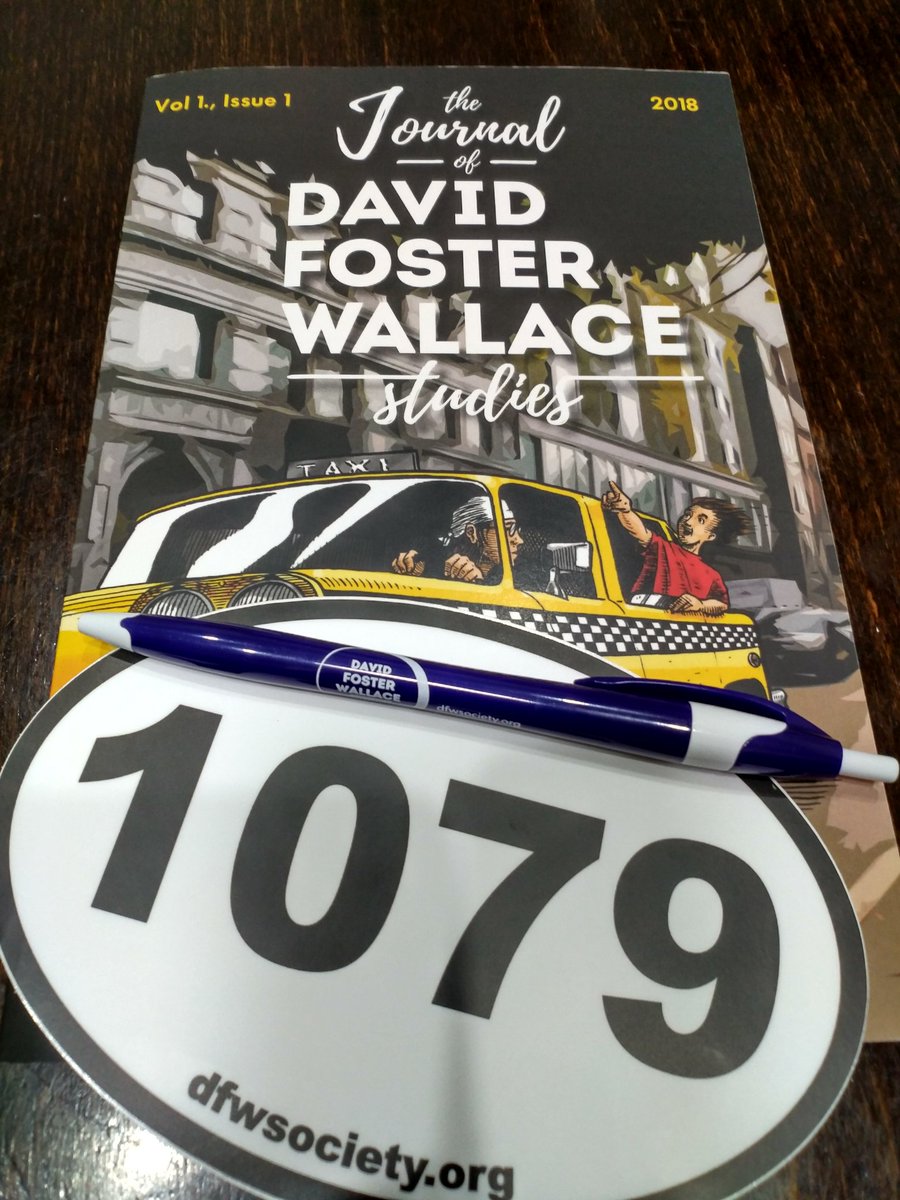Allison Bonnell, a long-time reader of The Howling Fantods, reached out and offered a remembrance piece. It's great.
Thank you, Allison.
Here it is:
I remember when I discovered that David Foster Wallace had passed away. I began reading Infinite Jest on a whim in 2013, and I didn’t know very much about the novel’s reputation. I went into it expecting a good book, but by page 87 I knew that I had stumbled upon something otherworldly. Even now, its hard to describe how I felt when I read the book for the first time. Something lit up within me. I’d never before been so struck by someone’s words. I instantly knew that literature had changed. Whatever books were before, they weren’t now.
My next thought was that I needed to speak to the writer behind the massive volume I spent my summer on. At the time, I had no idea who he was or what else he had written. I just knew I had to write to him and tell him something. I didn’t know exactly what I would say, but I couldn’t go on with life pretending that he hadn’t just upended everything I thought words could be. In my naiveté, I got the idea that I – a 16-year-old high school student who wasn’t even as old as Hal Incandenza – could simply write to David Foster Wallace. I didn’t think he would reply. But I somehow managed to believe that if I could just get my thoughts down on paper and send him a letter explaining how much the book had touched me, he would read it, and he would know. I felt an intense urgency in my task; I kept thinking, “there’s no way someone makes this kind of art and you just don’t tell them what it did to you.”
One afternoon in 2013, shortly before the fifth anniversary of his passing, I typed his name into Google in search of a publisher’s address through which he could be reached. I started to read his Wikipedia page, pleased to learn that he had been the recipient of several prestigious literary grants. When I came across the date of his death, I was stricken. It took me several moments to process the fact that the person whose voice was so close that it seemed to breathe on the pages in front of me - whose words created a lopsided intimacy within the footnotes of a story that felt breathtakingly, heartbreakingly, real - was no longer alive.
Of course, I only knew the author, and not the person. And I never experienced his death in the way so many readers did, through the anguish and sorrow that followed September 2008. But sitting there in my bedroom, I was at a loss. Deep within David Foster Wallace’s work, I had found a promise. Here was this writer – a writer who changed what writing could be – and his work felt close, steady, and above all, imbued with life. There had to be more to come. But suddenly, there wasn’t.
His work came to me in words, and after I learned of his death, he always seemed to leave words behind, too. The questions piled up: what were we supposed to do with everything that he had left us? What did it mean to explore authenticity, identity, and contemporary life in the wake of his death? Where did that leave me, and other readers who - while they may not have seen him as a lost generation’s sole beacon of light - would admit that he had startlingly poignant insight into the challenges that many of us felt most plagued by? I experienced his loss as a building up of ideas, emotions, and observations that were born of his work but felt severed by his absence. On the fifth anniversary of his passing, I remember wondering whether I could fully participate in a world that he had chosen to leave behind.
Since then, however, so much has happened. The academic community that exists around his writing has only increased in vibrancy, diversity, and breadth. I’ve had the privilege of meeting two writers that David Foster Wallace worked alongside, Zadie Smith and David Lipsky. But above all, I’ve been fortunate to feel a sort of sacredness when I speak about his work with other readers. Our mutual understanding creates a space between us - a closeness that mimics the heartbeat of his prose – that gives our ideas someplace to go. We’ve inherited a sort of project from him, a way of reading and thinking and looking at the world, and we’re stewards of this quietly profound legacy. We’re still keeping the promise that we found on his pages.
Today, I look back on David Foster Wallace’s life, and there’s still so much to say. There are moments when I’ll flip through highlighted passages in Infinite Jest or pick up Oblivion and be struck once again with that urgent need to write to him. To let him know the way his work opened up my world and continues to influence the kind of person I want to become. To tell him that clouds will never be just clouds and buildings never just buildings. That I have a strange fondness for the American Midwest even though I’ve never been there. That I met the most fantastic person I’ve ever known because of our mutual love for Enfield Tennis Academy. That ten years after he passed away, his words just keep on living.
Above all, there’s one very important thing that David Foster Wallace has taught me. It’s that we must feel the sadness in our lives – the sorrow in the air that tastes distinctly North American, the disconnection and depression that follow us around, and the moments of bored loneliness that often still categorize middle-class life. And yet instead of citing these phenomena as reasons to pack up and opt for spiritual hibernation, I recall the startling vitality in David Foster Wallace’s work. Its there, glowing and pulsing, on every page. It screams and it whispers, it nudges gently and pulls abruptly. But it always calls us towards a radical embrace of life, revealing the intricacy of the mundane and the abundant totality of human experience. Of course, this sentiment is best expressed through the words of David Foster Wallace himself, who once noted that he, “wanted to write stuff about what it feels like to live…instead of being a break from [it]”1. I will be forever grateful that he did.
1 Lipsky, D. (2008, October 30). The lost years and last days of David Foster Wallace. The Rolling Stone.








